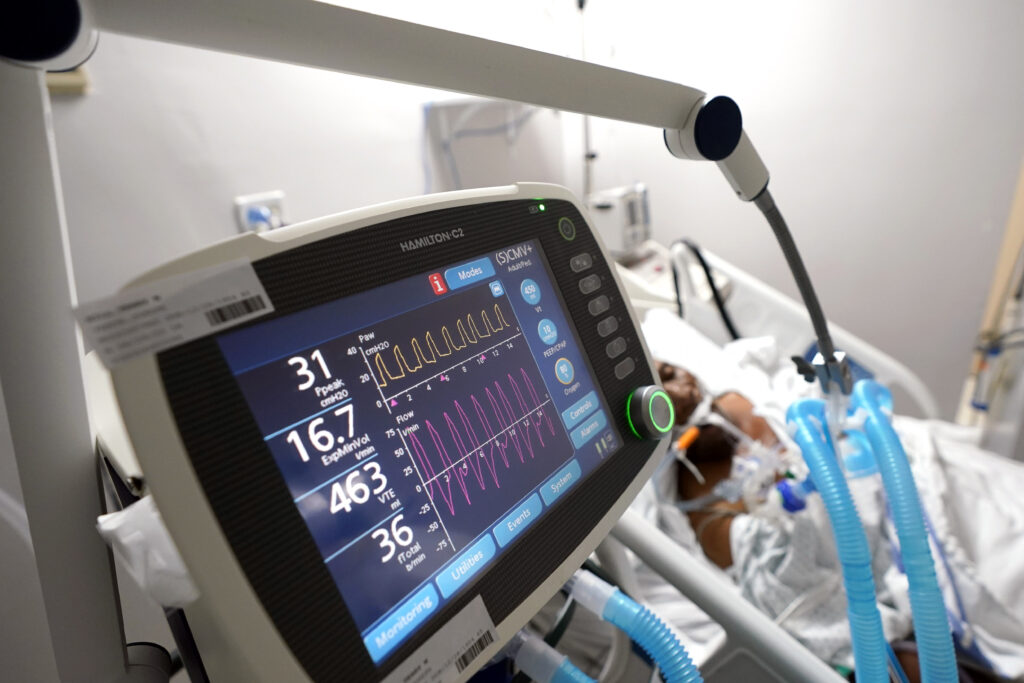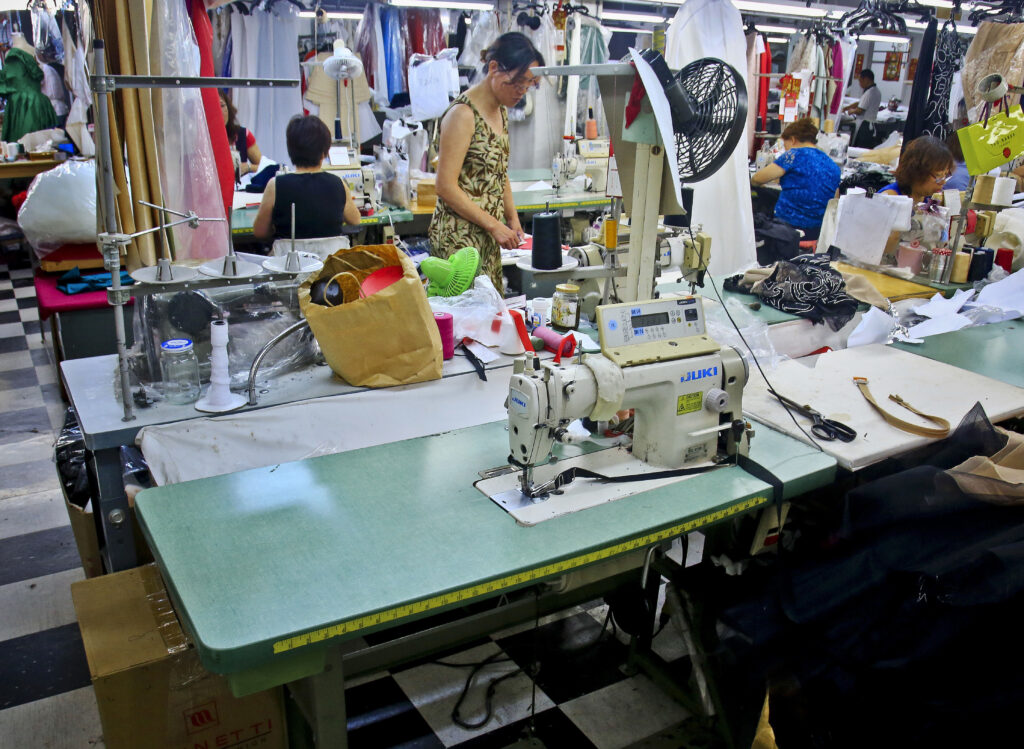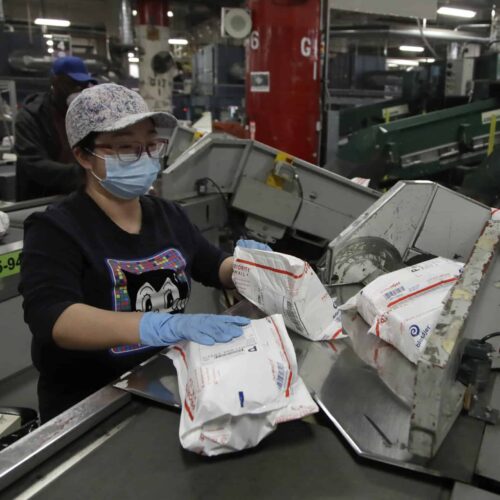Introduction
Hi Watchdogs, and welcome back to your favorite newsletter. We hope you’re (safely) enjoying the last few weeks of summer.
This week, two of our reporters help us unpack what’s going on with the U.S. Postal Service and how problems could affect the election and postal workers. We’re also recapping what we know so far about unpublicized documents from the White House Coronavirus Task Force and have an update on our investigation into scam charities.
Subtle reminder: The election is less than 3 months away. 😱The country is facing unprecedented barriers to voting because of the coronavirus pandemic. One of those barriers is the president himself.
Earlier this week, President Trump said he was blocking Postal Service funding to stop the expansion of mail-in voting.
“If we don’t make a deal, that means they don’t get the money,” Trump told host Maria Bartiromo on Thursday. “That means they can’t have universal mail-in voting; they just can’t have it.”
How could a lack of funding affect presidential elections in November? Our senior reporter Carrie Levine explains:
“Around 76% of the country now has the option to vote by mail. But concerns about delivery slowdowns at the U.S. Postal Service are raising alarms about its ability to handle millions of ballots for the general election. Democratic senators have called for an inquiry into the actions of Louis DeJoy, the postmaster general and a major donor to President Donald Trump, and there’s questions about whether his changes could disenfranchise voters. Some Republican senators have also voiced concerns. Meanwhile, the U.S. Postal Service is warning some states their ballot deadlines don’t leave enough time for mail delivery and could prevent some ballots from being counted.”
Levine also reported on the complications of mail-in voting during Ohio’s primary. It may be a look into what’s to come in November.
It doesn’t stop there. USPS documents obtained by Vice’s Motherboard show the agency proposed removing 20 percent of letter sorting machines. Weeks later, plans were revised to remove 502 machines from service. USPS workers told Motherboard that removing the machines will slow their ability to sort mail. One of the documents also suggests that changes occurred before DeJoy, a Trump donor and Republican fundraiser, became postmaster general.
Related: If you want to read up on voting problems, ProPublica’s Electionland has a list of resources.
FYI: Facebook’s new Voter Information Center is meant to help provide fact-checked information about voting. The tech company still isn’t fact-checking or removing misleading information that Trump has shared about mail-in voting. Back in May, Facebook founder and CEO Mark Zuckerberg said that he thinks social media platforms shouldn’t be the “arbiters of truth” after Twitter fact-checked a Trump tweet.
To further complicate the issue, USPS workers are also facing a slew of challenges because of the pandemic. Our reporter Alexia Fernandez-Campbell’s investigation found that the USPS violated emergency sick leave laws for employees who fell ill to COVID-19 –– more than any other employer. Read more here.
Joe Biden and his running mate, Sen. Kamala Harris, called for governors to implement a mask mandate earlier this week after Harris received a briefing on the pandemic from public health experts. According to Biden, doing so would save 40,000 American lives.
Harris is the first Black and Asian woman on a major-party national ticket.
Progressives haven’t forgotten her career as a prosecutor and reputation as California’s “top cop.” But an analysis by GovTrack, a nonpartisan organization that compiles data on congressional legislation found that Harris was “the most liberal senator” last year based on its analysis on legislation she co-sponsored and its co-sponsors.

Impact: Our reporter Liz Essley Whyte recently won an award from the American Society of Journalists and Authors for her groundbreaking coverage on discriminatory practices toward the disabled for COVID treatment — and was cited in proposed legislation.
And our reporter Sarah Kleiner’s and data editor Chris Zubak-Skees’s investigation into how most contributions to certain political action committees and charities don’t end up helping those in need just won an Excellence in Financial Journalism Award from the New York State Society of Certified Public Accountants. 🎉Check back in on our site for an update.
We provide life-saving information to the public for free. Help keep our newsroom going.
We can’t do this work without your support.
Los Angeles, California, gave a thumbs up for manufacturers to begin sewing cloth masks as part of its early response to the COVID-19 outbreak. But the garment industry’s sweatshop-like conditions and poor oversight pose an even bigger risk to workers during a global pandemic, reports Alessandra Bergamin for The Lily. In this week’s reporter Q&A, we talk to Bergamin about reporting on the experiences of garment workers — many of whom are immigrant women who are often undocumented — sewing masks for as little as five dollars an hour.

How did you get the story? What led you to pursue it?
In mid-March, as more and more countries were sent into lockdown, I began to read about the closure of garment factories across Asia and the millions of workers that were being laid off. While Los Angeles and Dhaka, the site of the 2013 garment factory collapse at Rana Plaza, are some 8,000 miles apart, the garment industry in both places is based upon sweatshop-like conditions, sub-contracting, poor oversight and the labor of migrant workers. At the time, I hadn’t read much about the impact of COVID-19 on garment workers in Los Angeles but had a sense that closures and layoffs were also happening here.
Around the same time, Los Angeles Mayor Eric Garcetti announced that contracts would be issued to local factories to manufacture masks to address the PPE shortage. I had noticed that masks were suddenly being sold on every second street corner and wondered where the sudden influx had come from. My original goal for the story was to delve into who exactly had been given city contracts beyond the more vocal ethical clothing brands such as Reformation. I think that the story of Rosa Martinez — a garment worker who graciously shared her experience of having to choose between her health and her livelihood — speaks to some of the larger issues that workers are facing amid the pandemic. Martinez recounted how she had to work seated close to more than 10 other employees without a mask, without gloves and without knowing whether anyone around her was sick during the pandemic.
“What we’ve seen is that the cleanliness and sanitation issues that were present prior to COVID-19 are still not being dealt with, even for mask production,” said Alex Sanchez, a field organizer with the Garment Worker Center.
What were the challenges of reporting and how did you navigate them? Where do you look for inspiration?
I have a strong interest in international reporting (much of which has been put on hold due to the pandemic), so I try to think about the way global stories play out locally. In this case, the Los Angeles garment sector is a microcosm of how the fast fashion industry operates on a global scale. While countries may differ geographically, ethnically and economically, the movement of people through immigration, the globality of supply chains and the role of the internet in spreading ideas means there are potential ways into foreign stories that exist on your doorstep.
That’s all we have for you, folks. Did you get your mail-in ballot? Are you planning on going to the polls in person? Reply to let us know. 📧Stay safe and see you next week.
Read more in Inside Public Integrity
Watchdog newsletter
Words matter: Was the attack on the Capitol a rally, protest or insurrection?
The question remains how history will record the events that resulted in mayhem at the U.S. Capitol.



Join the conversation
Show Comments